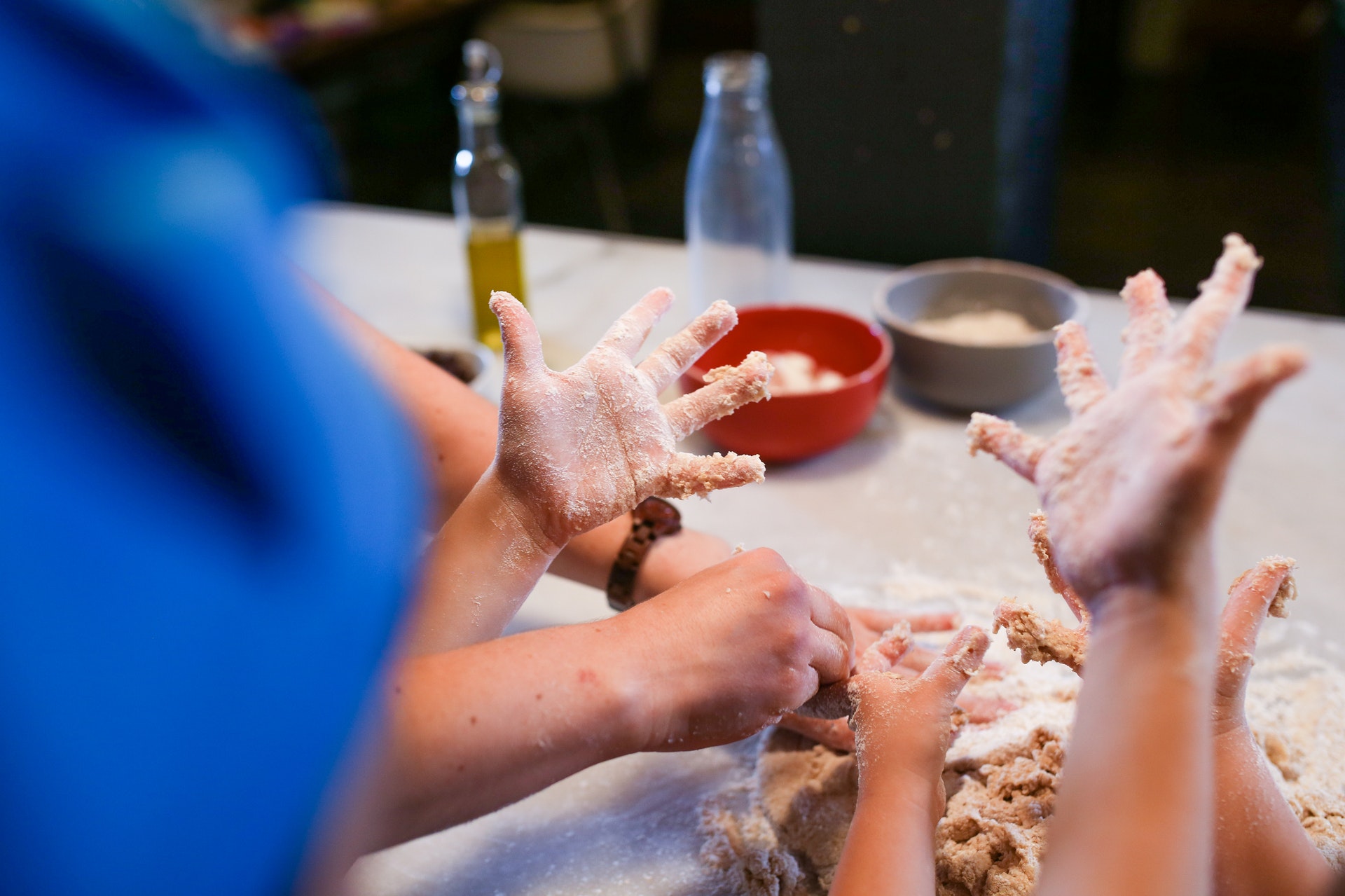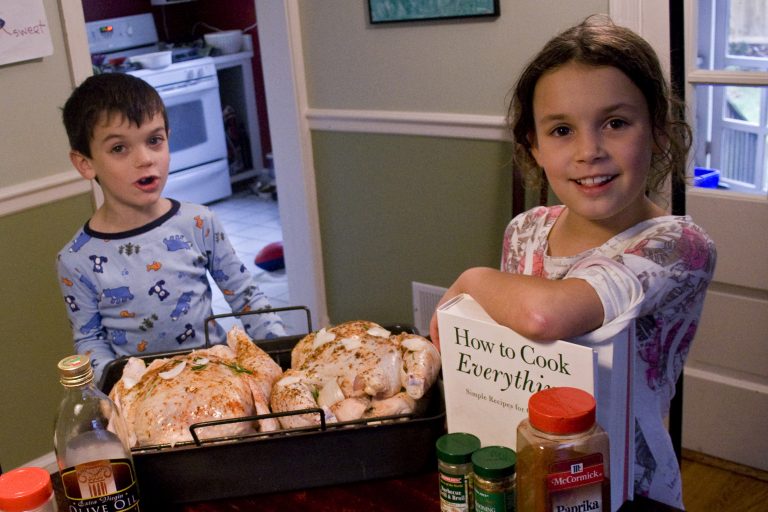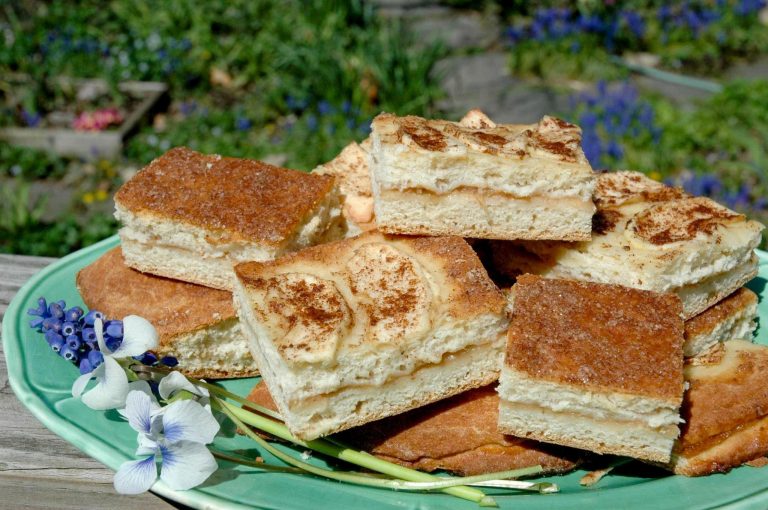Cooking with children is an absolute blast! So, get your youngsters involved in the kitchen and cook up something delicious. Simple meals need few ingredients, are easy to make, and can be prepared and served in two shakes of a lamb’s tail.
Children can participate in culinary activities from a very young age, and learn valuable life skills, respect for their food, and healthy eating habits.
Tiny tots under three
A toy kitchen at this age is a treasure. Tiny pots and pans, bowls and utensils in just the right spatial accommodations will give them hours of entertainment. Here, they can practice the cooking skills you teach them without supervision.
In the kitchen, prepare a workstation for your little one: a separate area near you that will keep your toddler safely away from potential dangers like kettles, wires, pan handles, stovetops, sharp objects, etc. Collect some child-friendly kitchen utensils at a small table, or at the counter with a safety step stool so they can reach.
Children love playing with water. This can make even the preparation process of washing up an enjoyable part of the experience. Give your toddler a bowl of vegetables to wash, and ask him to identify them as he goes along.
Success
You are now signed up for our newsletter
Success
Check your email to complete sign up
Let them own part of the process. A child will feel valuable and necessary if you let her search for ingredients in the cupboard or fridge. Give her a plastic lemon juicer and let her do her best. To build confidence, give her choices and let her make some decisions.

Mixing and mashing are simple activities that even young children can do. For banana bread or muffins, instruct your child to mash the bananas with a fork. For mashed potatoes, let the cooked potatoes cool a bit, then have your child pound away. Give him a wooden spoon, spatula or whisk, and let them mix, roll, or flatten dough.
Helping your child understand where food comes from will sow the seeds of respect. If you don’t have the means to plant a little garden in your own backyard, try visiting a local farm so they can observe the process of growing produce. Even just sprouting seeds in the kitchen is a tiny miracle that they will appreciate.
Cooking with children ages three to five
Children of this age will want to be more involved in whatever you’re doing as an adult. Due to their increased dexterity, you may give them more challenging tasks.
In the case of cutting food, make sure they have a suitable knife — child-safe knives are available and are worth the extra cost. Choose soft items to cut, like cooked vegetables that have cooled, or fruits that are not too firm.
Bread and muffin mixes are ideal for a young cook- and the sieving process is fun! To minimize the mess, balance the sieve over a bowl and tap it, rather than shaking it around. Let them use a rolling pin to roll out cookie dough and find some amusingly shaped plastic cookie cutters.
Small people adore small things. Individual serving recipes are always a big hit with toddlers: mini bread pans or mini pitas for individual pizzas are perfect. Let them create their own pizza with toppings.
If your toddler is picky about food, incorporate new items in your joint culinary efforts. They’ll want to try what they’ve helped to make, so include plenty of healthy ingredients.
Enlist the help of your toddler. Young children are capable of sweeping, putting items in low cupboards, recycling, and other household tasks. Teach them how to properly set the table, and encourage them to value the tradition of family meals. You may be surprised how much a young child enjoys helping his parents.
Cooking with children ages five and up
Five year olds can make their own simple breakfast with whole-grain cereal and milk or simply berries over yogurt.
Spend some time with your child looking over recipes, and ask them to write out a grocery list. Your child is likely able to read a whole recipe, so encourage him or her to do so.
Children ages five and above are capable of doing more complex activities. They can use scissors, for instance, to snip herbs. A grater can be used, with caution to avoid the fingers. Greasing a pan with butter using the bare hands is easy and fun. If they can do all this, you might let them attempt something more difficult, like cutting shortening into flour, but remember to have patience. The more you let them do, the prouder they will be of their achievement!
How about engaging your child in making preparations for a stew? Guide them through knife safety, and help them cut raw vegetables and toss them into a big sturdy pot. Assisted tasting and seasoning while it simmers will make them feel like a real chef.
After the age of eight, children can begin to participate in more complex activities. With proper attention to the heat source, ingredients may be stirred on the stove. Because of the large number of possible kitchen dangers, constant supervision is still necessary. By now they may open cans, use peelers, balloon whisks and handheld mixers.
Encourage your child to devise a meal plan and create a dish from start to finish, independently.
Tweens and teens
This age group is more coordinated and should be able to operate appliances without assistance. Stress the importance of hand-washing before and after handling food. The ability to measure, carry or pour without spilling, open containers and packets, and weigh ingredients will make them quite efficient in the kitchen.
Teens should be able to create a variety of meals by following recipes. Provide nutritional guidelines and let them pack their own lunch. Fruit salads and smoothies are well within their capabilities. As they gain knowledge of various food groups, nutrients, and what makes a balanced meal, they will become more competent in the kitchen, a quality that will serve them throughout their lives.
The word for eating in Chinese consists of two characters: chi fan (吃飯), or eat rice. The word for taking medicine is chi yao (吃藥), or eat medicine. The ancient culinary traditions of China produced meals that were both delicious and curative. Teaching children how to cook well equips them with a vital skill that will enable them to take responsibility for their own health. Some say “food is medicine.” In that case, the cooking skills they learn with you will give them the ability to maintain health for themselves and their families in the future.















